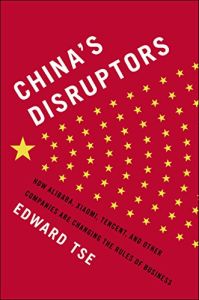Join getAbstract to access the summary!

Join getAbstract to access the summary!
Edward Tse
China’s Disruptors
How Alibaba, Xiaomi, Tencent, and Other Companies are Changing the Rules of Business
Portfolio, 2015
What's inside?
Think China still has a stodgy, state-run economy? Think again.
Recommendation
China earned a reputation as a low-wage, low-skill economy. That stereotype might endure, but is no longer accurate, argues strategy consultant Edward Tse. In this revealing look at China’s fast-changing business climate, he describes an entrepreneurial ecosystem that moved beyond copying American rivals to accomplishing bona fide innovation. Chief among the success stories is Alibaba, which boasts hundreds of millions of customers, sent eBay packing and successfully diversified into financial services, big data and cloud computing. Tse delves into the strategies of such companies as mobile messaging provider Tencent, online grocer Yihaodian, and smartphone maker Xiaomi. His well-reasoned conclusion: Rules that apply elsewhere don’t necessarily work in China. getAbstract recommends this analysis of innovative Chinese corporations to investors and managers seeking a fresh look at this dynamic economy.
Summary
About the Author
Founder and chief executive of Gao Feng Advisory Co., Edward Tse is a consultant who helps companies develop and apply their strategies.

















Comment on this summary